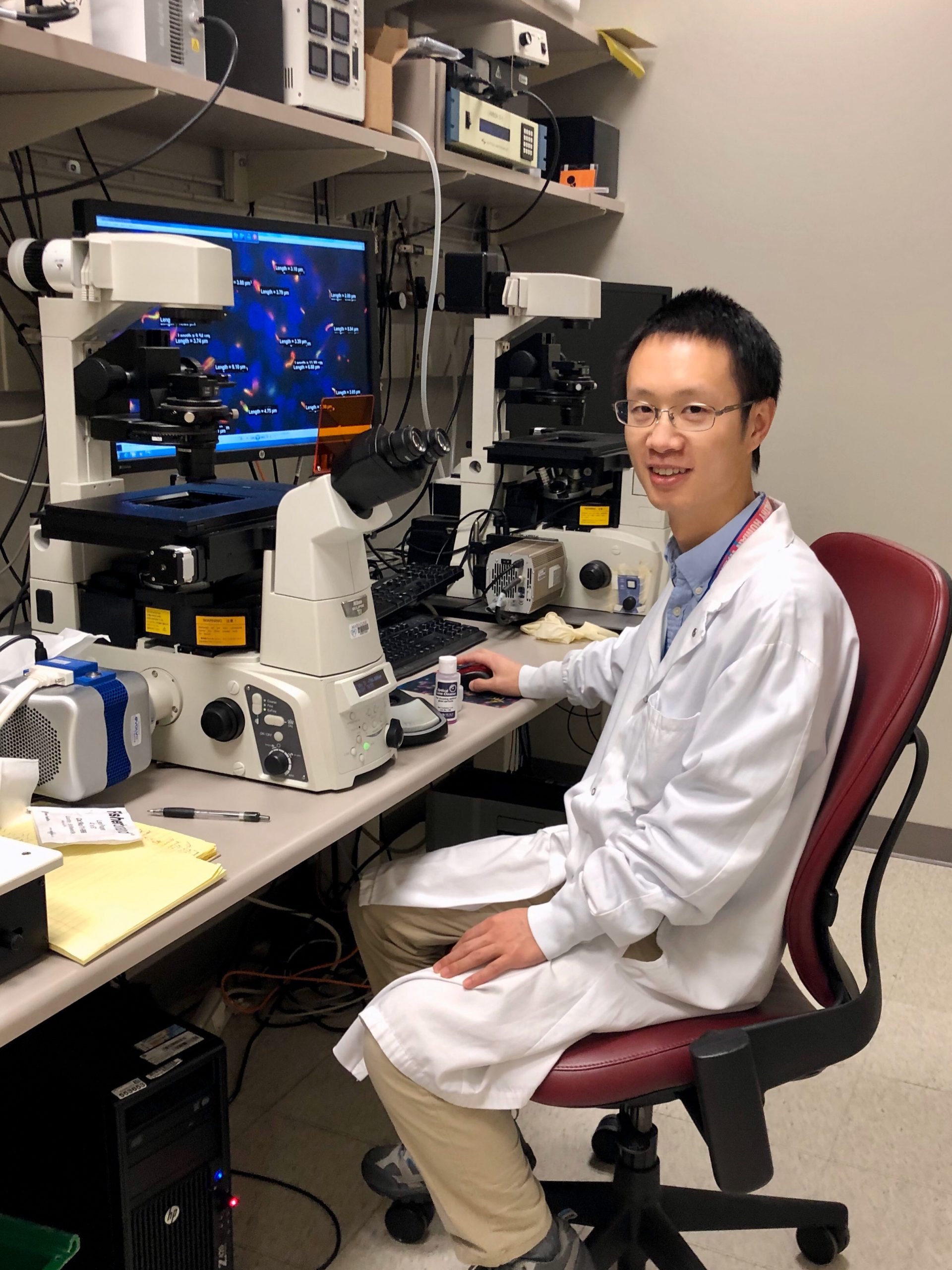Published January 16, 2020
Kai He, Ph.D. | Mayo Clinic
PKD Foundation (PKDF): How did you first get involved in PKD research?

Kai: After my Ph.D. training in molecular cell biology and biochemistry, I started my postdoctoral research at Mayo Clinic studying the physiological and pathogenic function of primary cilium, the sensory antenna of the cells and the key organelle in the pathogenesis of PKD, which brought me to the PKD research field.
PKDF: What are you working on currently?
Kai: My current research direction is on cilia signaling and ADPKD. I am focusing on how the PKD proteins and other cilia-related signaling machineries properly localize to cilia to execute their sensory function. I am also working on identifying new therapeutic targets and drugs for restoring the functional level of PKD proteins, and further exploring whether it will suppress the development of PKD.
PKDF: What would you like the patient community to know about your research?
Kai: Polycystin 1 and polycystin 2, encoded by the ADPKD causal genes PKD1 and PKD2, have been proposed to form a sensory complex on kidney epithelial cilia. Our research has discovered a novel pathway by which this cellular sensor properly localizes to cilia to execute their function. We also have found a novel molecular target in this newly identified pathway for restoring the function level of polycystin. Now we are further exploring if genetically or pharmaceutically inhibiting this target will suppress PKD progression. We are also performing a high-content drug screening to discover more promising drugs that could restore the function levels of polycystins.
PKDF: What excites you most about this research?
Kai: Our current research not only significantly advances our understanding of polycystin biology, but also will provide novel therapeutic approach/targets/hits that address unmet clinical needs of ADPKD patients.
PKDF: What are some of your personal interests outside of research?
Kai: I love baseball and fishing and I’m a big Lakers fan.
PKDF: Anything else you’d like to share?
Kai: In the past two decades, researchers around the world have made great strides in understanding the fundamental genetic and biological mechanisms that contribute to the etiology and pathogenesis of polycystic kidney disease. I want the patient community to know that clinicians and scientists with expertise in different areas now are working alongside to move the promising therapies forward quickly from the lab through clinical trials and into clinical practice. I do believe that more and more treatment options will be available in the very near future.
Check out Dr. He’s fellowship and others funded by PKDF here!
PKD Foundation is the largest private funder of PKD research in the U.S. Since 1982, we’ve invested close to $50 million in more than 1,300 research, clinical and scientific grants, fellowships and scientific meetings. Each year, The Foundation identifies and supports the work of scientists and researchers from around the world who look for ways to treat and eventually cure PKD.
Our vision is to end PKD. Donations help fund necessary research that leads to more effective treatments and ultimately a cure for PKD.









0 Comments